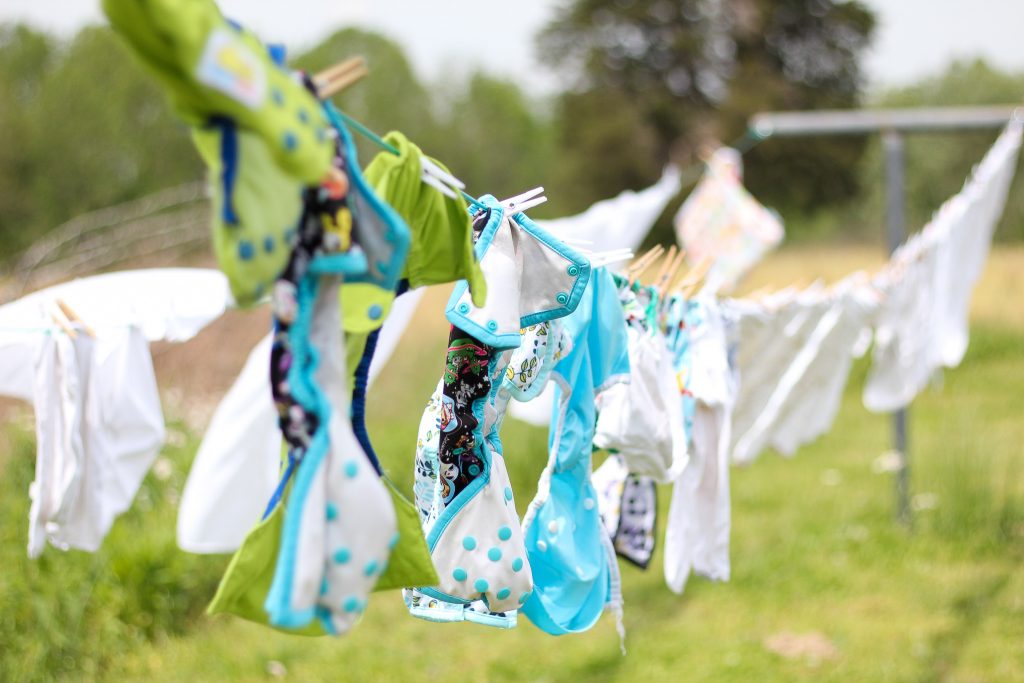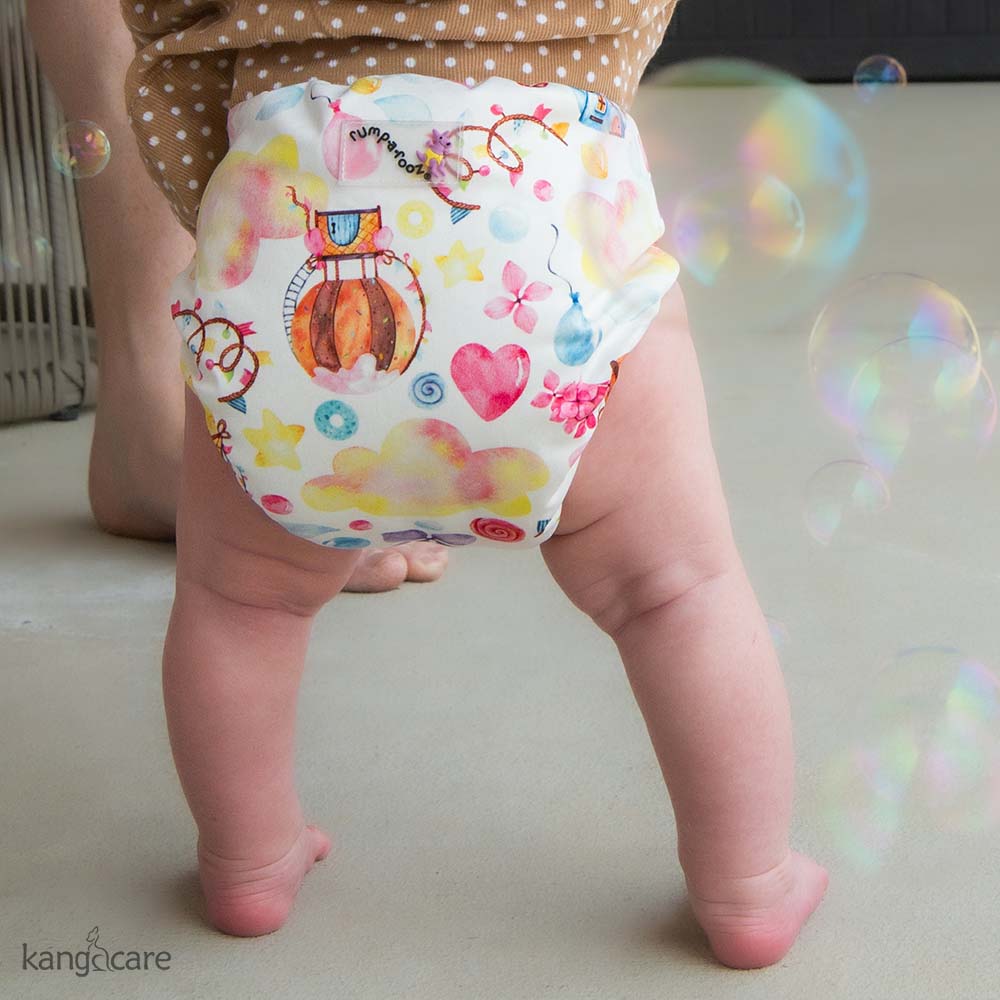You’re probably already familiar with our world-class delivery service, but did you know that we also offer cloth diaper stripping here at Pumpkin’s, too? Dealing with a diaper-stink that just won’t quit isn’t something we’d wish on anyone, and it can definitely be a labor-intensive process to strip and bleach your own stash – so let us take care of it for you! If you’re convinced you want to take the DIY approach and handle all cloth cleaning duties yourself, don’t worry, we’ve still got your back; we’re always willing to give you a hand with troubleshooting and perfecting your own at-home wash routine. With that said, let’s go over a few of the basic challenges you might come across while washing at home, and dive into some tips and tricks that we’ve discovered to help those cloth diapers come out soft, cozy, and oh-so-fresh!
Choosing a Proper Detergent
A lot has changed over the last 4-5 years with regards to which detergents are ideal for washing cloth diapers. Gone are the days when it was necessary to spend extra money in order to purchase specifically ‘cloth diaper safe’ detergents. In most cases, your standard household laundry detergent will work just as well for cloth diapers as it does for shirts, pants, and socks! A lot of cloth diaper manufacturers have now updated their own washing recommendations to include numerous mainstream detergents that you can find in any laundry aisle. As long as the detergent does not contain a built-in fabric softener, it should be okay to use with your cloth diapers.
Even for households with sensitive skin, there are still lots of great detergent options that will properly and thoroughly clean those dirty diapers. Plant-based or free-and-clear products generally require a tad extra detergent per diaper load, as well as more water softeners – more info on that further down!
Here is a helpful graphic from Fluff Love University – this is a great guideline to work with, but do keep in mind that these are US-based recommendations, and not everything may be available here in Canada:

MYTH: More Water, Less Detergent
There’s an old wives’ tale about washing cloth diapers that says the more water you use, the less detergent you’ve got to drop in, and the cleaner your laundry load will come out in the end. Let’s be honest with ourselves and face the nitty-gritty facts: washing cloth diapers means we are dealing with human waste. Therefore, it actually requires more detergent (and a strong one, in the best-case scenario) to effectively clean your diapers. The old myth of adding more water to achieve clean diapers has been replaced by the science of using a proper amount of detergent, coupled with sufficient agitation of the diapers to scrub deep into the material. The notion of extra rinses being helpful has also been debunked, as this process can lead to additional mineral deposits being left on the fabric, which can then trap debris and cause stink issues. For a great summary on how much detergent you should be using for each load of diapers, we once again refer you to the knowledgeable folks at Fluff Love University.
HE Machines CAN Be Used to Wash Diapers
While it has taken some time to figure out the science behind the latest technological advances in laundry, high-efficiency (or HE) machines can certainly be used to effectively wash cloth diapers at home! And no, this process does not involve hauling any extra buckets of water to add to your machine…
Effective wash routines for ANY washer include a short cycle for diapers only with minimum detergent, followed by a long, heavy-duty cycle afterward with maximum detergent, with the addition of enough bulk material to create proper agitation. For HE machines, this means adding small items such as hand towels, children’s clothes, socks etc. to your drum until it is 2/3 to 3/4 full. It may take a bit of fine-tuning to find the right balance that works for you, and there are lots of additional resources online to take a look at if you find you need more help dialing in a routine that works just right with your setup at home.
Washing in Hard Water
The last piece of the puzzle is to test your own home’s water hardness. This value, along with your detergent choice, helps to determine if you need to be adding a water softener (e.g.: Borax) to one or both of your wash cycles. It’s also advantageous to use a powdered detergent if you’re dealing with particularly hard water, as they contain more water softener in the detergent itself compared to the liquid formulas.
Phew, that’s a lot to take in! Confused by any of this? Feel free to reach out, and I will gladly help you decipher the numbers!
Washer Maintenance
The last important note we’ll leave you with is a reminder that it is also very important to clean your home washer on a regular basis. This can be done by running a tub clean (or a hot regular cycle depending on your machine) along with a cleaning tablet or powder. It is recommended to do this on a monthly basis to keep your washer performing at its best. You can also take this opportunity to check the drain trap (typically a small panel on the lower front corner) for any clogged debris that may slow the draining of your washer (hint: check here if you are experiencing suds errors!).

Take advantage of these key points, and you’ll have a proper wash routine locked down in no time! We truly believe that cloth diapering can be a hassle-free, rewarding, and enjoyable experience. After all, who doesn’t love a baby with an adorable fluffy bum?! If you ever feel like you need some advice or a bit of help to get the most out of your cloth diapering experience, don’t hesitate to get in touch with us here at Pumpkin’s Diaper Delivery, and we’ll be more than happy to lend you a hand!



Leave a comment
This site is protected by hCaptcha and the hCaptcha Privacy Policy and Terms of Service apply.